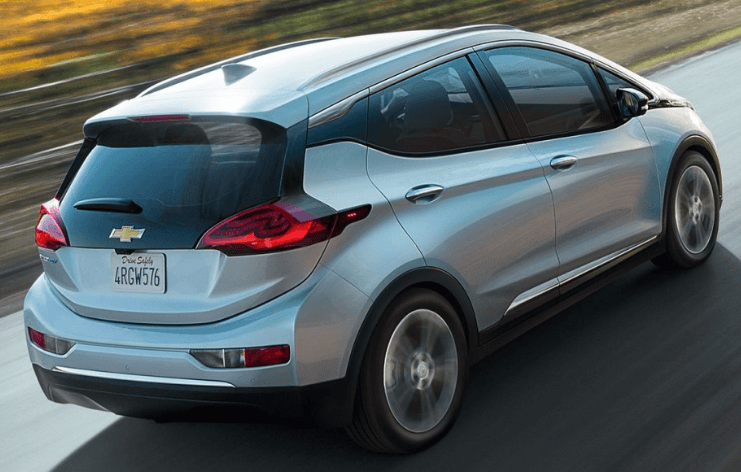
Tesla was once the darling of the electric vehicle and clean-tech worlds. It has the fastest production car on the planet. Its cutting-edge vehicle design turns every head. And the company boldly re-thinks what electric cars can and should be today. But Tesla has gone from being an industry disruptor to one disrupted by doubts about its new business model and production shortfalls.
Now, the former golden child of Silicon Valley has another challenge on its hands: The all-electric Chevy Bolt, slated for release by the end of this year, has an EPA range exceeding that of Tesla’s Model 3.
With a purported range of 238 miles, the Bolt could drive about 10 percent farther than the mass-produced Model 3. The result is a huge challenge for Tesla, which carved out a niche as a visionary leader in this small but rapidly growing automobile market.
And the attention General Motors (GM) scored for this achievement shows the automakers are still guessing electric cars are the future, despite the two-year slump in petroleum prices. Add the fact that a once-pedestrian automaker could potentially cure the “range anxiety” that long had consumers skittish about EVs, and we have even more good news for this sector.
This week’s announcement is also a boon for GM, Chevy's parent company. The automaker had its own fair share of struggles this year, including a recent airbag recall that could affect up to 3.6 million vehicles. Many companies are good at over-promising and under-delivering on products. (Think: the latest device from Apple, or the latest and greatest meat alternative that promises to change the world but still tastes like shoe leather.) Just earlier this year, GM estimated the Bolt would have a range of 200 miles. To extend that distance by almost 20 percent is no small feat.
Of course, Tesla is far from crying “uncle.” As Fortune writer Kirsten Korosec pointed out this week, Tesla has a long track record of manufacturing EVs that offer a stellar driving experience. GM is the relative new kid on the block with the Bolt. True, GM has offered the Chevy Spark for a while, but other than its torque, driving a Spark is about as scintillating as driving a Toyota Echo or a Kia Rio.
Furthermore, Tesla promises a slightly lower price than the Bolt (if you can believe it). As of now GM, priced the Bolt at $37,500, while the Model 3 is targeted to cost slightly under $35,000. And Tesla offers incredible design flourishes, while the Bolt -- like many American cars -- has a more pallid look and feel inside and out.
Nevertheless, if GM can wow customers and meet demand, Tesla could have some serious catching up to do. The Model 3, set to release in 15 months, now has a waiting list so long that Bloomberg had some morbid fun speculating what would happen if someone on that list died before receiving his or her Tesla.
But as the cliché goes, competition is good for the marketplace. Depending on how the Bolt resonates with consumers, Tesla could always respond in kind. And do not expect folks on the Model 3 waiting list to flee to the Bolt just because they may be able to drive around in a competing EV sooner. It is important to remember the early adopters and tech types who fawn over Tesla and its 21st-century versions of muscle cars. The Model 3 promises a top speed of 125 to 130 miles per hour, even up to 155 mph if drivers opt for the “Ludicrous” mode (though, at those top speeds, say bye-bye to its range). Danielle Muoio of Business Insider reported that the Bolt will carry a top speed of, ahem, 91 miles per hour, which is a yawner for many consumers.
So, whether or not Tesla and GM end up in a rivalry once considered totally unimaginable, the stubborn fact is that electric cars are performing better, catching the eyes of more consumers and can offer us a hedge in the event that the low oil prices of now become, once again, a volatile cost of tomorrow.
Image credit: Chevrolet

Leon Kaye has written for 3p since 2010 and become executive editor in 2018. His previous work includes writing for the Guardian as well as other online and print publications. In addition, he's worked in sales executive roles within technology and financial research companies, as well as for a public relations firm, for which he consulted with one of the globe’s leading sustainability initiatives. Currently living in Central California, he’s traveled to 70-plus countries and has lived and worked in South Korea, the United Arab Emirates and Uruguay.
Leon’s an alum of Fresno State, the University of Maryland, Baltimore County and the University of Southern California's Marshall Business School. He enjoys traveling abroad as well as exploring California’s Central Coast and the Sierra Nevadas.














